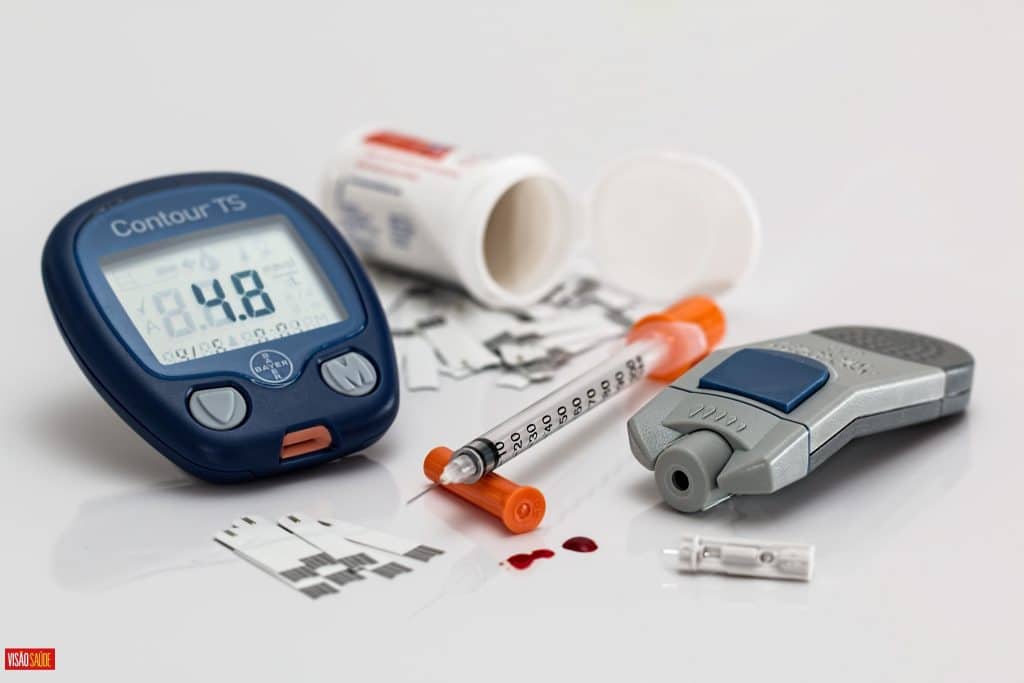In addition to genetics, the aging of the Portuguese population, obesity and a sedentary lifestyle are factors that have contributed to the development of diabetes in Portugal, but there are also elements that are even “more determinant” and with more impact on this disease: poverty, unemployment and low education”.
These words are from José Manuel Boavida, endocrinologist and president of the Associação Protetora dos Diabéticos de Portugal (APDP), in statements to VISÃO, which nevertheless reinforces the problem of overweight and obesity in the development of diabetes. “The prevalence [da doença] in obese people it is four times higher than in people with a Body Mass Index within the reference values”, says Boavida.
In addition, the fact that there is no routine that involves physical exercise in the “life of the vast majority of people of working age” has repercussions for health and is one of the steps to developing a disease such as diabetes, guarantees the doctor. It is estimated that, by 2045, there will be 700 million people affected by the disease and, although the number of deaths from diabetes has decreased in 2020 compared to previous years – there were about 3500 deaths due to the disease -, the pandemic of Covid-19 may have “hidden” the number of new cases.
This situation has resulted in, at the moment, several undiagnosed diabetics, increasing the risk of premature death and decreasing the quality of life, since there is no control of the disease for many people. In addition, the endocrinologist explains, these data refer to “diabetes as the main cause of death, but the disease appears to be underestimated as a secondary cause in people who, in addition to diabetes, have cancer, cardiovascular disease or dementia”.
According to data from the National Diabetes Observatory, Portugal is one of the European countries with one of the highest prevalence rates of diabetes: about 13.3% of the population between 20 and 79 years of age has the disease, which corresponds to more than a million people.
“Portugal lacks structures and human resources in health to ensure screening for the population”
José Manuel Boavida argues that, in Portugal, “there is still much to be done in terms of reducing the risk of developing diabetes, early diagnosis and optimal care”. “There is a lack of structures and human resources in health that ensure systematic screening of the population and the fact that we do not have enough family doctors and nurses for all people fails”, he says, also mentioning that there is also “a lack of specialization in primary and secondary health care”. in hospitals”.
Having diagnoses of this disease earlier and investing in screening and access to health care can, in fact, make a difference, guarantees the endocrinologist. “Evidence shows us that the implementation of preventive measures can reduce the risk of developing diabetes by more than 60%” and help to reduce or delay the risk of the onset of the consequences associated with diabetes, such as myocardial infarctions, strokes brains, kidney failure, blindness and lower limb amputation, “with obvious repercussions on healthy life years”, he adds. “Diabetes takes an average of 8 years off a healthy life and that number can and should go down”.
On a social level, the doctor says that the problem lies in the “model of society itself”. “It is necessary and urgent to implement health policies that improve our living conditions and schooling, oriented towards a change that starts to integrate physical activity into our daily routine, including work, and that facilitates access to health products. healthy eating”, says Boavida.
For APDP, which monitors people with diabetes in Portugal, the strategy for an effective response to the challenge posed by the disease involves, first of all, knowing “how many and how people living with diabetes are doing, through the development of registration systems”. and sharing of health data, at national and European level”.
It is also necessary to know, identifies the doctor, “where these people are” and to reinforce the “programs for screening and early diagnosis of complications”, in addition to monitoring the way in which they are supported. “Social factors, such as poverty, poor urban planning, and poor working conditions, for example, are associated with more and worse disease. Support and social support integrated with health responses are essential for people with chronic diseases to achieve positive results in their health”, guarantees Boavida.
“Proximity health professionals are the ones who are best positioned to respond to people’s needs”, says the doctor, adding that knowing how to control the disease, also through “investment in integrated primary care”, is essential to ensure people with diabetes to live long and healthy lives.” And prevention, with the implementation of “policies to promote active life, access to healthy food and support for the production of healthy food products”, is also a very important weapon, concludes Boavida.

